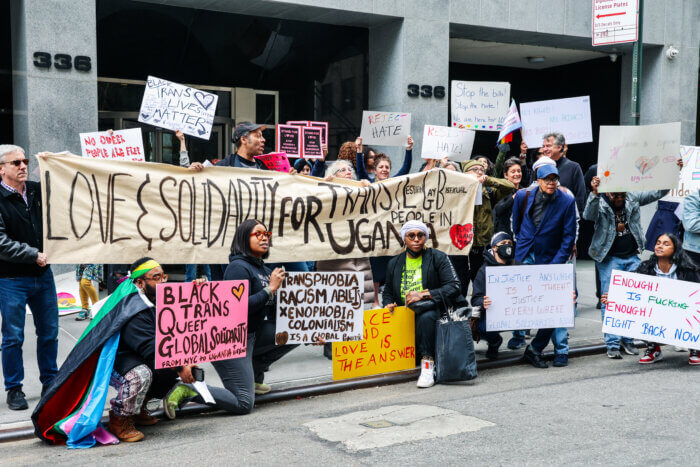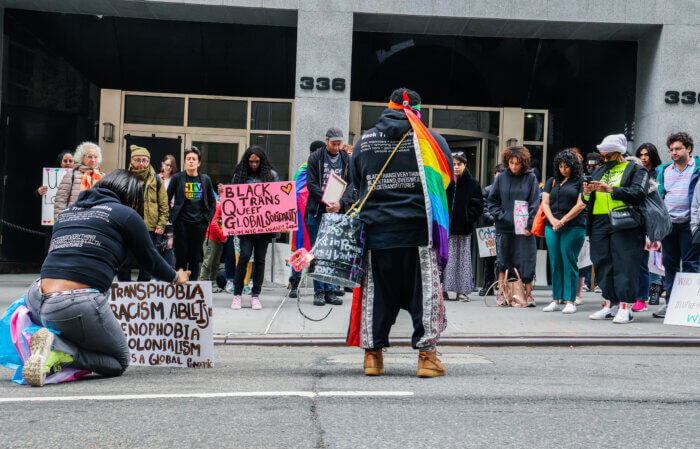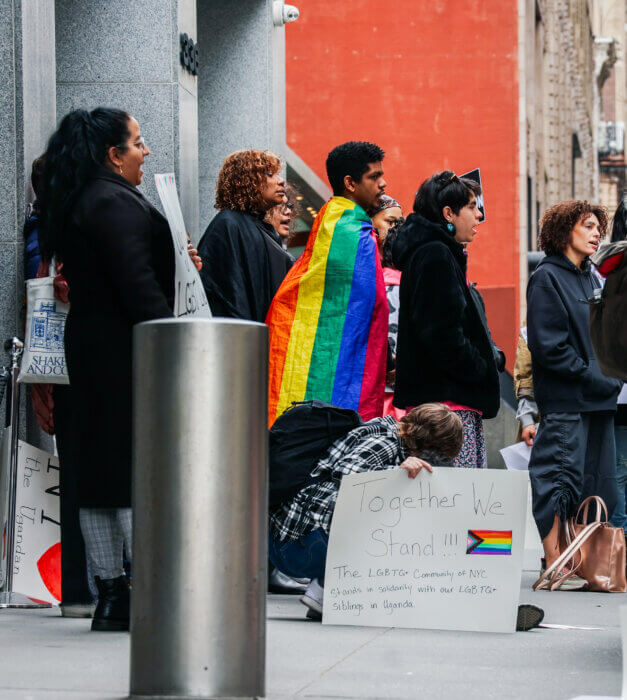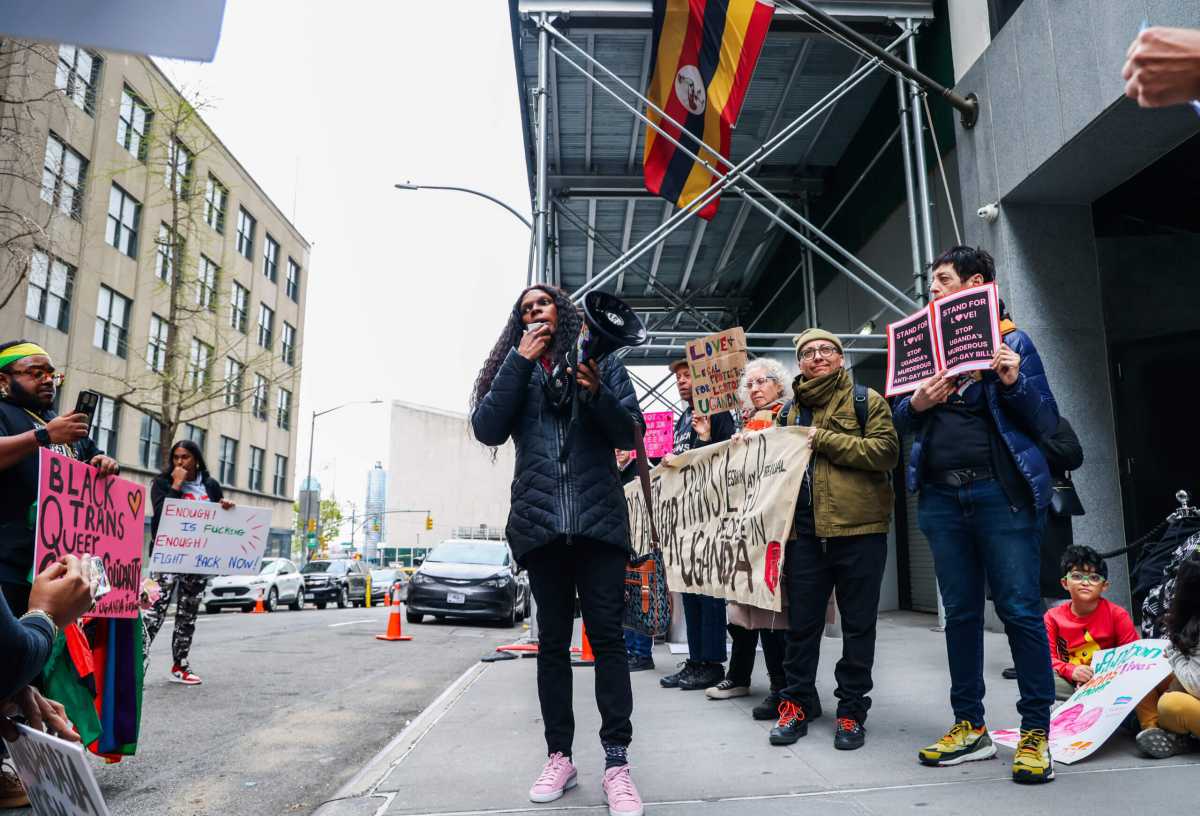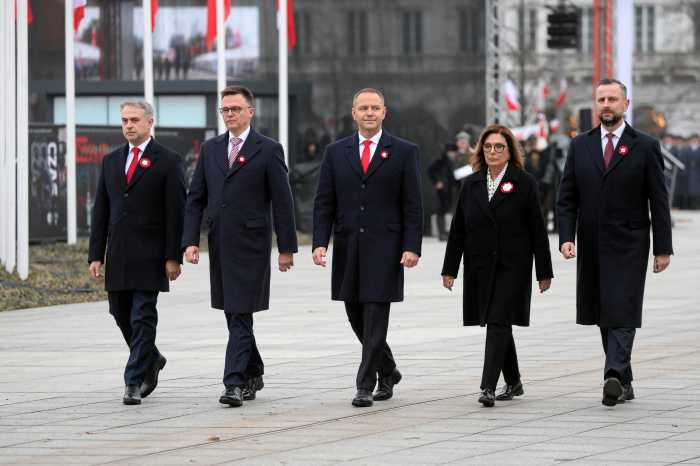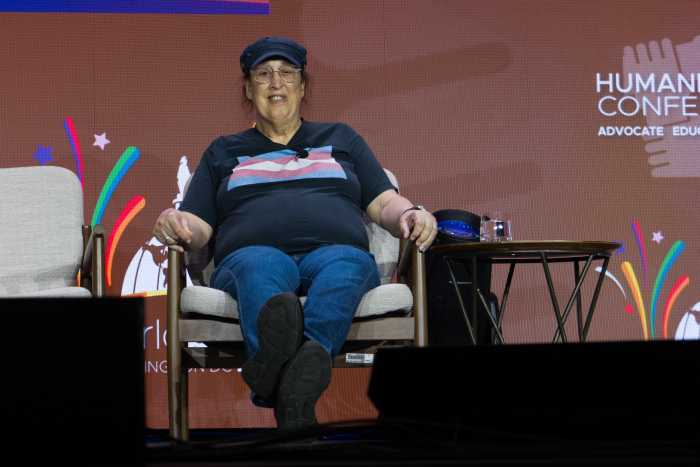Advocates gathered in front of Uganda House, the Permanent mission of Uganda to the United Nations in New York, on April 7 to stand in solidarity with LGBTQ Ugandans and condemn the East African nation’s parliament for passing a strict anti-LGBTQ law last month that calls for the death penalty in certain cases.
There were speakers, signs, and banners sprinkled around the crowd at embassy at 336 East 45th Street in Manhattan, where advocates underscored the importance of standing in solidarity with the oppressed queer communities in Uganda.
Beyonce Karungi, who founded Transgender Equality Uganda, spoke about the dangers facing Black trans women in Uganda. There were advocates from several groups, including Black Trans Media, Black Trans Travel Fund, Queer March, and Blasian March.
The signs on display were colorful and filled with messages of support and defiance. One sign stated that “Transphobia, racism, ableism, xenophobia, and colonialism” amount to a global pandemic, while another sign — this one in pink — said “Black trans queer global solidarity from NYC to Uganda and beyond.”
The bill passed by Uganda’s parliament on March 21 punishes individuals identifying as LGBTQ and requires that individuals report those who are LGBTQ to the police. Sex between people of the same sex can lead to a life sentence and sexual relations can land someone in prison for seven years. The latest bill calls for the death penalty for cases of “aggravated homosexuality,” which, according to the New York Times, would call for the death penalty for any same-sex acts by someone who is HIV-positive or in cases where a person commits sexual acts with children or someone who is drugged against their will.
President Yoweri Museveni has not yet signed the bill, but he has been outspoken in recent weeks about his opposition to the LGBTQ rights.
The country sparked global outrage in 2014 with the passage of legislation that was known at the time as a “kill the gays” bill, though the death penalty provision was later removed and the law was subsequently struck down by the courts.
“This law is very extreme and draconian,”Ugandan LGBTQ rights activist Frank Mugisha said, according to Reuters. “It criminalizes being an LGBTQ person, but also they are trying to erase the entire existence of any LGBTQ Ugandan.”
Among other concerns, there are worries that the law could push people in the LGBTQ community further underground, making it much more difficult to address HIV/AIDS and other health needs.
